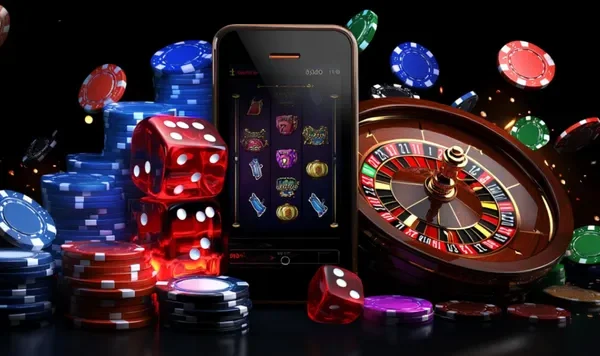Good winning poker players see glasses as half full, king’s full, and have a “grind mentality”: to remain alert and make astute decisions. Wins and losses do happen on occasion, but one’s final results are not determined by the hand he plays.
They know the importance of staying level, as tilt causes emotional frustration and irritation that makes you prone to bad decisions and costly moves.
Focus on the process
Building a winning poker mindset requires us to always strive to be better players, with play reviews, with identifying our mistakes or learning new strategic concepts but also through routines – establishing daily or weekly rhythms that can involve exercise, meditation, playing or eating well. Positive attitudes can lead to better decision-making, reducing the likelihood of costly emotional errors because you’re calm, clear-headed and level-headed. A positive attitude, furthermore, will help you deal with frustration or disappointment if your way – for example, an unkind flop or eke-out by losing a big pot. This mental armour also enables you to carry on – to accept the way things are (eg, this is a game of luck, over the long term I’ll be lucky, these upswings will inevitably be followed by downswings) and to continue without deviating from the rules, viewing mistakes as opportunities to learn from. Mental fortitude might be what you need to keep playing in the face of adversity.
Embrace the concept of variance
Varience – poker’s dark handmaiden – is one of the most difficult tenets of the game for players of any level to accept. It can push you to incredible highs and plummeting lows within your bankroll. Various simple ploys for those seeking to deal more effectively with variance are obvious: ‘Yes, I’m losing money, but I’ve still got money and am doing great overall’; ‘Yes, it’s a bad beat, but it’s not a bad beat/I’m not losing in a bad beat/cooler situation’; or ‘Yes, I’m losing money, but I’m still winning.’ All will benefit from remembering this Whenever they’re faced with a bad beat or cooler, that is. If you know that, even when you lose, you did the right thing, that makes it easier to stick to your plan and not chase your losses or allow false notions of false risk to dominate your play. Poker takes a long time, and learning to think styles such as this, which engender better decision-making, are bound to help improve your poker decisions as well as your life decisions in the long term.
Develop your problem-solving skills
Problem-solving is another distinct hallmark of a good poker mindset, using many of the same techniques: making quick decisions, meta-thinking (thinking while you’re thinking), anticipating mistakes and calibrating (learning from them), as well as how to adapt your plan and realise when to abandon a strategy entirely, what philosophers call ‘pragmatism’, which, as it turns out, is good to have in nearly any setting outside the poker table, even the work place. By developing our brains properly, we tap into a great machine that can understand and register millions of bits of information every second, faster than a Formula One racecar in high gear. But we are not infallible – our focus can be swayed by feelings or some other factors that colour our vision, so self-awareness and acceptance of variance become key to improving your state of mind.
Don’t fall into the trap of “confirmation bias”
This type of mindset can help you recover and overcome setbacks, as well as maintain a long-term perspective; a positive attitude that enables you to remain motivated to achieve personal goals and can focus your attention in this direction can also help you to keep a long-term perspective. Some research suggests that the best way to keep yourself out of the confirmation-bias trap is to stay attuned to your feelings and take a moment to think things through. One way to do this is by practising mindfulness. As explained by the Greater Good Science Center: Mindfulness is the art of paying attention, on purpose, in the present moment, non-judgmentally. The goal is to be aware of what thoughts and feelings are presently arising in your moment-to-moment experience. Visualisation can also help, not only by preparing an athlete or a professional performer for their performance, but also by physiologically affecting their body and boosting performance through the anticipation of a visualisation, or by instilling mental readiness. Often, athletes or performers need to visualise a rendition of an event or situation, in order to have the security of rehearsal or some type of familiarity – so as to be able to make fast, on-the-spot decisions when under pressure that differ from what would be reasonable, and aims to familiarise or simulate the experience of the visualised event categorised as ‘fantasy’. For example, visualising a certain type of play, such as a basket, before a tournament can engender familiarity with that type of situation, and it can be utilised to help the athlete or performer make faster decisions that coincide with their skills.
Manage your emotions
A winning poker attitude is one of the most important factors that separates successful players from the rest of the field. It helps to keep the beginning player moving forward, and it’s just as important for maintaining a players’ edge when they reach higher levels of proficiency. The winning attitude helps to eliminate destructive thoughts and allows the player to deal with problems that might otherwise make the game unplayable. It allows them to maintain composure during difficult situations, to remain calm and rational when things seem impossible, and to approach each new hand with the goal of making the best decision possible. After the bad beat or emotional letdown, able and realistic decision-making must be restored. Often, this requires the employment of some form of affect-regulation strategy, such as taking a restroom break or practising meditation or using deep breathing exercises, in order to re-set and get back on task. It is just as attitude and come to grips with variation. Losing is part of the game and even the best players can go on losing streaks or get hit by bad beats; we need to keep a clear view of things as these things happen to us if we are to learn from them and not let our judgment be compromised by them.











